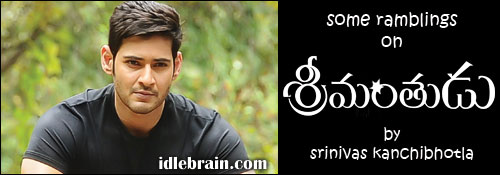
Goodness, at some point of time, could have started off being a pure survival mechanism back when humans were still struggling to find a way of coexisting without getting at each others throats all the time. And like all survival instincts, certain traits get imbibed into the psyche and physiology over a period of time, whereby they transcend being merely reflexive responses and transform into emotional responses. The train sequence, in Swades, where Shah Rukh character looks on as a little boy dressed in rags runs up and down the platform along the length of the stationary train, trying to make a mere rupee selling a small pot of water, couldn't have depicted better, the overwhelming emotional response to the glaring inequities in the current society. Of course, it doesn't take a movie to cast focus on the what is all around. A mere stop at a busy traffic signal would more than do the job. No sooner does a 4 wheeler come to a stop than it is swarmed by kids of all ages, sizes and varying hygiene (in deteriorating order) tapping on the (rolled up) windows pleading to hear their plight. Little ones, for absolutely no fault of theirs other than missing out on the ovarian lottery, find themselves on the receiving end constantly pegging their survival to the benevolence of the haves. This common sight, unlike violence, doesn't inure anyone completely in spite of the constant exposure to it on a daily basis. Even after shooing away the older ones of the lot advising them to pick up a spade or a spanner (and feeling undeservedly proud for dispensing (an absolutely worthless) advice), when another little one (too small for his age to realize that the answer to his hunger for the day is sitting inside the air conditioned car oblivious to the scorching heat outside) puts his hand out with a goofy grin, more in imitation of his brethren than with any real knowledge of the value of the money, and says 'saab, ek rupay dO naa..', something deeper than the survival instinct, something hidden in the core, suddenly bubbles all the way up and chokes the heart requiring a hard gulp to do away with that mighty lump that is formed throat. Humanity has indeed come a long way from treating goodness as mere mortar that binds the society together; now it better realize that nobility is a necessity, a need of the hour (and ironically) the only way it can survive. Yes, goodness has come a full circle.
It has been a long long time since any telugu movie has waged its fortunes on wishing good, being good and doing good. All the commercial aspects of the movie aside, this is a fabulous effort on the part of the writer and the actor to believe that deep down the genetic make up of the majority of the society is imprinted with the age old values of community living, group effort and sharing philosophy (సహనా వవతు, సహనౌ భునక్తు, సహ వీర్యం కరవా వహై), the original foundation principles, even in this age of splintered homes and self serving mentalities, and the reason why only a minority among the society share the major burden of social upliftment has little to do with their economic wherewithal. The recurring news of Super 30, every year during the announcement of IIT results, an institute run by someone with limited means, who has the resolve, however, to pull students out of abject economic conditions by seeing through the tough exams successfully, makes the case that money is merely the facilitator of the means, it is the motivation that is indeed the prime mover. Beautiful effort this, Srimanthudu, that propping the society back with whatever has been taken from it by the ones who made it, not by offering token monetary support (and later claiming it under some tax deduction), but creating the conditions and the platform whereby the less fortunate can take advantage of the system and pull themselves out of the perpetual misery, is how the society recycles, renews, regenerates and reinvigorates itself. This idea is not just admirable, it is exemplary, worthy of emulation. In the current cut throat capitalistic mindset where the right to resources (land, water and air) is gifted away based on money (power) and might (politics), even the violence in the climactic sequence is perfectly justified (which is quite rare for a telugu movie where violence is almost always gratuitous), with men in power unwilling to yield power, lest that puts them in a position of risk or weakness and the only way forward for the society remains removing the road block once and for and all. There are no 'power' dialogues here nor any 'punches' (other than the ones thrown by the hero), for, when the situation is dire, tall talk would only do so much, it is walking the talk that actually takes the society places. Stellar Job!
checkout http://kanchib.blogspot.com for Srinivas's Blog.
